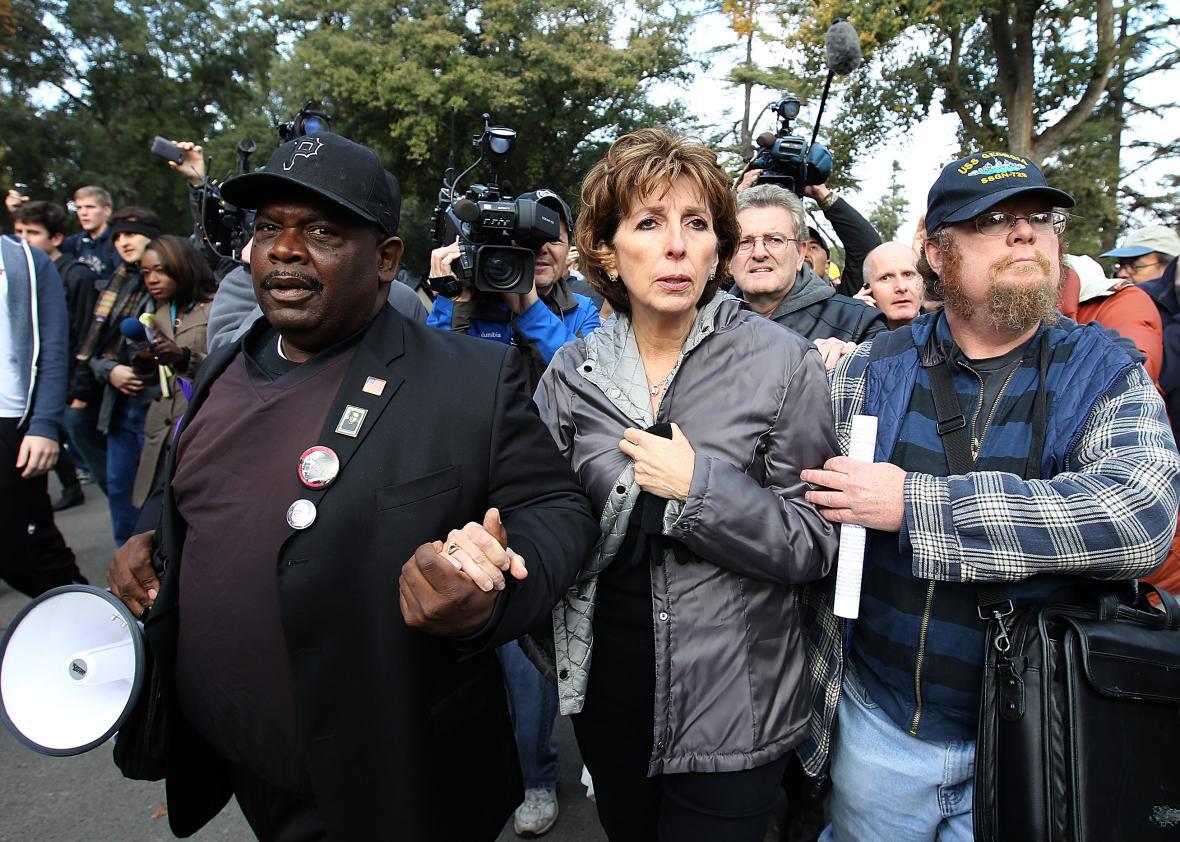When you, a private citizen, do something you aren’t proud of that is then uploaded to the internet, you don’t have a whole lot of recourse. If you’re European, you could fill out a Google form to request that the company remove irrelevant or harmful search results. If you’re a famous celebrity, you could have your PR team try to sue an individual publication. If you’re the University of California–Davis, apparently, you can pay a firm boatloads of money to get references of said embarrassing event wiped from the internet and replaced with more positive mentions.
This is what the university did in order to counteract the popular search results around its infamous 2011 pepper spray scandal. Some incredible digging by the Sacramento Bee this week reveals that the university spent $175,000 on a campaign to scrub the web of these unflattering articles that the university apparently felt soiled the reputation of the campus and its chancellor, Linda P.B. Katehi. It countered that negativity with a “surge of content with positive sentiment”—all paid for from the school’s communications budget. In an era of budget scarcity across the University of California system—Davis’ sister school Berkeley announced 500 staff layoffs this week—Davis saw its strategic communications budget swell from $2.93 million in 2009 to $5.47 million in 2015.
You may recall the incident that Davis is so eager to forget. After asking a large crowd of Occupy protesters to leave university grounds on Nov. 18, 2011, campus police resorted to blasting pepper spray at them. Someone took a video of one cop nonchalantly spraying a line of seated students, which was then viewed millions of times on YouTube; a photo of the same event quickly became a meme. Many, many negative articles—some calling for Katehi to resign—ensued. Facing such “venomous rhetoric,” as one PR consultant put it in a six-page proposal on how to help the school, what was a poor little university to do?
Hire a firm that specializes in managing online reputations, of course! In 2013, Davis hired that Maryland company, Nevins & Associates, to embark on “an aggressive and comprehensive online campaign to eliminate the negative search results for UC Davis and the Chancellor.” The Bee was able to discover this fact by filing for contracts between the firm and the university under the California Publics Record Act. A year after the PR contract was established, the bad press, investigations, and lawsuits continued. So in June 2014, the university hired Sacramento-based ID Media Partners to extend its endeavor to sanitize its pepper spray–related search results.
Funnily, the Bee’s work may have undone all of those clean-up efforts Davis spent so much on (Google “UC Davis” on Thursday, and you’ll get a list of articles on all the money it spent to clean up its online reputation).
So what does Davis have to say for itself now? In response to the Bee’s reporting, officials said they were merely attempting to shift the internet’s focus back to the school’s excellent academics and public service: “We have worked to ensure that the reputation of the university, which the chancellor leads, is fairly portrayed,” campus spokeswoman Dana Topousis told the Bee. “We wanted to promote and advance the important teaching, research and public service done by our students, faculty and staff, which is the core mission of our university.”
You know what else is part of the core mission of the university? Free speech, dialogue, and accessibility of information. Not sure manipulating search results to project a better campus image quite meshes with that ideal.
